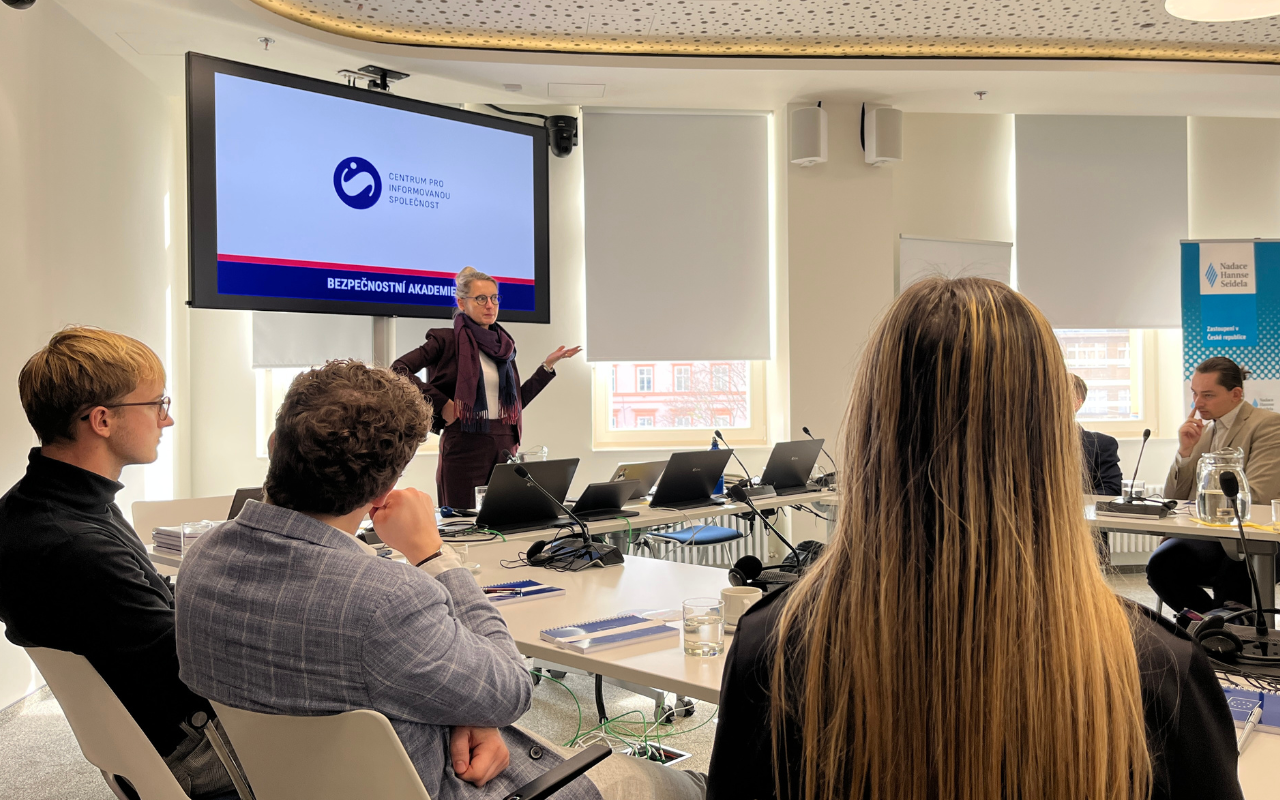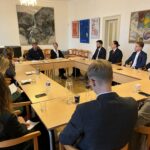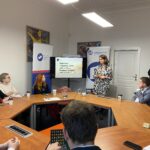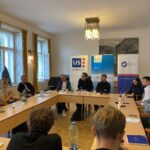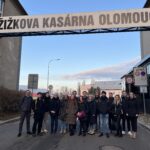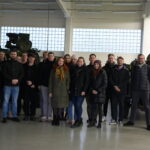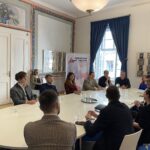The first semester of the fifth year of the Security Academy 2024/2025, held from late October to early December last year, focused on deepening participants' knowledge and skills in security and foreign policy. This two-semester program includes 15 students and recent graduates from the Czech Republic with an interest in security. The semester kicked off with an opening seminarin late October 2024. During the seminar, participants were introduced to key topics in current security issues, such as the situation in Ukraine, U.S. foreign policy, and its impact on global relations.
In early November, a series of lectures and practical workshops followed. The program continued with a lecture by Petr Tůma from the Czech Ministry of Foreign Affairs and the Atlantic Council, focusing on U.S. foreign policy after the presidential elections and its potential impact on global security. The first half of November concluded with a discussion with Marie Bendegard, Deputy Head of Mission from the Embassy of Sweden, who provided insights into Sweden’s foreign and security policy and its experience as a NATO member.
In the second half of November, participants explored the issue of hybrid threats and ways to counter them from the perspective of the Czech Ministry of Defense. This session was led by Jakub Tejkl, a Security Academy graduate and current representative of the Ministry of Defense.
At the end of November, the 15 young participants learned about the work of the National Center Against Organized Crime (NCOZ) and its role in fighting organized crime in the Czech Republic. Jiří Mazánek, Director of the NCOZ, presented the key areas of the unit’s operations. In the afternoon, Vendula Kazlauskas delivered a lecture on Baltic geopolitics and the impact of Russia’s neighboring situation on the security policies of these states.
The semester concluded in December with a study visit to selected units of the Czech Army in Olomouc and Prostějov. Participants had the opportunity to gain insights into the daily operations of the Czech Army and acquire hands-on experience that complemented the theoretical knowledge gained during the semester and their previous studies. In Olomouc, they met with Col. Ivo Zelinka, 91st Information Warfare Group commander, and discussed not only the group's activities but also strategic communication and working with sources within the Czech Army.
The program also included a lecture with a security analyst focusing on information warfare, OSINT (Open Source Intelligence) methods, and current security threats related to Russia. The discussion provided participants with valuable insights into the significance of information operations in modern conflicts and methods for analyzing them.
In Prostějov, the group visited the 102nd Reconnaissance Battalion of General Karel Paleček, where they attended a lecture on the operations of this elite unit. They received a detailed overview of its structure, main tasks, and key role in defending the Czech Republic. The visit also included a practical demonstration of the unit’s weaponry and equipment used in its operations, offering a unique perspective on its daily activities and capabilities.
The Security Academy is made possible thanks to the support of Pale Fire Capital, the BLÍŽKSOBĚ Foundation, the Hanns Seidel Foundation, the Friedrich Naumann Foundation, and the Representation of the European Commission in the Czech Republic.

